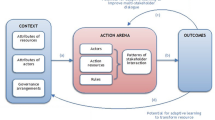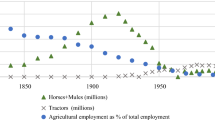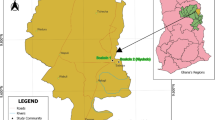Abstract
The Forestry Pilot Plan set intomotion collectively-owned and managed forestry in overforty communities in Quintana Roo, Mexico and hasshown the promise of a forestry development model thatpromotes conservation by giving local people a genuinestake in sustainable resource management. Today, thelegacy of the PPF is under great pressure. Externally,neoliberal policy reform restructures agrarianproduction in ways that favor individual overcollective management of natural resources.Internally, organizational problems createinefficiencies within both forestry ejidos(cooperative agrarian communities) and theirintermediate level forestry civil societies. Peasants'capacity to defend their interests and dealeffectively with their production problems throughstrong representative organizations is beingundermined by new rules for economic associationwithin the ejidos and by the turning over of technicalservice financing to the market. Though organizationalinnovations within the ejidos hold positive potential,existing civil societies merit continued assistance askey actors promoting sustainable forestry. Studyingcommon property management regimes across multiplelevels and dimensions reveals that in Mexico, policyreform overlooks the crucial social resourcesrepresented by peasant organization, undermining thepossibility of sustainable forest management whileassigning the peasant most of the cost ofconservation. If conservation is indeed encouraged bythe genuine participation of those with a stake insustainable use of natural resources, national andinternational communities that value Mexico's tropicalforests should also invest in both social and economiccosts of conservation.
Similar content being viewed by others
References
Argüelles Suárez, L. A. and N. Armijo Canto (1995). Utilización y Conservación de los Recursos Forestales en Quintana Roo, Problematic y Perspectivas del Manejo Forestal. Unión Nacional de Organizaciones de Foresteria Comunal, A.C.
Armijo Canto, N. and H. Albrecht Arellano (1998). Participatory Analytical Workshops about the Problems and Issues of the Forestry Sector in Quintana Roo. Department for International Development, Government of Great Britain, mimeo.
Armijo Canto, N. and J. R. Jiménez (1998). Distribution of the Forest's Socio-Economic Benefits: Study of Five Forest Ejidos in Central and Southern Quintana Roo. Department for International Development, Government of Great Britain, mimeo.
Bartra, A. (1991). “Pros, Contras y Asegunes de la ‘Apropiación del Proceso Productivo’,” in A. Bartra (ed.), Los Nuevos Sujetos del Desarrollo Rural (pp. 3–22). Mexico City: ADN Editores.
Belausteguigoitia, J. C. and J. C. Fernandez (1993). Los Bosques en México: Situación Actual y Perspectivas Ante la Nueva Ley Forestal y el Tratado de Libre Comercio. World Wildlife Foundation International.
Bray, D. B. (1991). “The struggle for the forest: Conservation and development in the Sierra Juárez, ” Grassroots Development 15(3): 13–25.
Bray, D. B. (1997). “La Reconstrucción Permanente de la Naturaleza: Organizaciones Campesinas y Desarrollo Popular Sustentable, ” in L. Paré, D. B. Bray, J. Burstein, and S. Martínez Vázquez (eds.), Semillas para el Cambio en el Campo: Medio Ambiente, Mercados y Organización Campesina (pp. 3–17). Mexico City: UNAM, Instituto de Investigaciones Sociales, La Sociedad de Solidaridad Social 'sansekan Tinemi” y Saldebas, Servicios de Apoyo Local al Desarrollo de Base en México, A.C.
Bray, D. B. and M. B. Wexler (1996). “Forest policies in Mexico, ” in L. Randall (ed.), Changing Structure of Mexico (pp. 217–228). Armonk, New York: M.E. Sharpe.
Cabarle, B., F. Chapela, and S. Madrid (1997). “Introduccion: El Manejo Forestal Comuntario y la Certificación, ” in L. Merino (ed.), El Manejo Forestal Comunitario en México y sus Perspectivas de Sustentabilidad (pp. 17–33). Cuernavaca, Mexico: UNAM, SEMARNAP, CMSS, WRI.
Chapela, G. (1997). “El Cambio Liberal del Sector Forestal en México: Un Análisis Comparativo Canadá-México-Estados Unidos, ” in Luisa Paré, David B. Bray, John Burstein, and Sergio Martínez Vázquez (eds.), Semillas para el Cambio en el Campo: Medio Ambiente, Mercados y Organización Campesina (pp. 37–56). Mexico City: UNAM, Instituto de Investigaciones Sociales, La Sociedad de Solidaridad Social 'sansekan Tinemi” y Saldebas, Servicios de Apoyo Local an Desarrollo de Base en México, A.C.
Cornelius, W. A. and D. Myhre (eds.) (1998). The Transformation of Rural Mexico: Reforming the Ejido Sector. San Diego/La Jolla: Center for US–Mexican Studies, University of California, San Diego.
Evans, P. B. (1995). “Rethinking embedded autonomy, ” in Embedded Autonomy: States and Industrial Transformation (pp. 227–250). Princeton, New Jersey: Princeton University Press.
Galletti, H. A. (1992). “Aprovechamientos e Industrializacion Forestal: Desarrollo y Perspectivas, ” in CIQRO (ed.), Los retos del fin de siglo. Chetumal, Mexico: Centro de Investigaciones de Quintana Roo.
Galletti, H. A. (1994). “Las actividades forestales y su desarrollo historico, ” in CIQRO (ed.), Estudio integral de la frontera Mexico-Belize (pp. 109–171). Chetumal, Mexico: Centro de Investigaciones de Quintana Roo.
Galletti, H., P. Rosales Salazar, and A. Argüelles (1997). “Agenda Forestal de Quintana Roo, ” Paper Presented at the Foro de la Agenda Forestal de Quintana Roo. Chetumal, Quintana Roo, México.
Granovetter, M. (1992). “Economic action and social structure. The problem of embeddedness, ” in M. Granovetter and R. Swedberg (eds.), The Sociology of Economic Life (pp. 53–81). Boulder, Colorado: Westview Press.
Hardin, G. (1968). “The tragedy of the commons, ” Science 162: 1243–1248.
Harvey, N. (1996). “Impact of reforms to Article 27 on Chiapas: Peasant resistance in the neoliberal public sphere, ” in L. Randall (ed.), Reforming Mexico's Agrarian Reform (pp. 151–171). Armonk, New York: M.E. Sharpe.
Harvey, N. (1996). “The reshaping of Agrarian policy in Mexico, ” in L. Randall (ed.), Changing Structure of Mexico (pp. 103–110). Armonk, New York: M. E. Sharpe.
Klooster, D. (1996). “Como No Conservar el Bosque: la Marginalización del Campesino en la Historia Forestal Mexicana, ” Cuadernos Agrarios (Julio–Diciembre) 14: 144–156.
Klooster, D. (2000). “Institutional choice, community, and struggle: A case study of forest co-management in Mexico, ” World Development 28(1).
Klooster, D. J. (1997). Conflict in the Commons: Commercial Forestry and Conservation in Mexican Indigenous Communities. University of California-Los Angeles, Ph.D. Dissertation.
López Nogales, A. and R. López Nogales (1999). Ley Agraria Comentada. Mexico, D.F.: Editorial PorrÚa.
Madrid, S. (1993). Obstaculos y Oportunidades de los Ejidos y Comunidades Forestales en México. World Bank.
McCay, B. J. and S. Jentoft (1998). “Market or community failure? Critical perspectives on common property research, ” Human Organization 57(1): 21–29.
McCay, B. J. and B. Jones (eds.) (1997). Proceedings of the Workshop on Future Directions for Common Property Theory and Research, 28 February. New Brunswick, New Jersey: Rutgers University.
McKean, M. (1997). “Common property regimes: Moving from inside to outside, ” Common Property Resource Digest (42): 3–5.
Merino, L. (1996). “Los Bosques de México: Una Perspectiva General, ” Cuadernos Agrarios (14 Jul–Dic): 157–162.
Merino, L. (ed.) (Forthcoming). El Cambio Institucional y Deterioro de los Recursos Forestales en México.Mexico City: UNAM (CRIM) y Fondo de Cultura Económica.
Merino, L. and G. Alatorre (1997). “Las Condiciones de los Aprovechamientos Forestales en los Casos de Distintas Comunidades de Mexico, ” in L. Merino (ed.), El Manejo Forestal Comunitario en México y sus Perspectivas de Sustentabilidad (pp. 35–56). Cuernavaca, Mexico: UNAM
Merino Pérez, L. (1997). “Organización Social de la Producción Forestal Comunitaria, ” in L. Paré, D. B. Bray, J. Burstein, and S. Martínez Vázquez (eds.), Semillas para el Cambio en el Campo: Medio Ambiente, Mercados y Organización Campesina (pp. 141–154). Mexico City: UNAM, Instituto de Investigaciones Sociales, La Sociedad de Solidaridad Social “Sansekan Tinemi”' y Saldebas, Servicios de Apoyo Local an Desarrollo de Base en México, A.C.
Myhre, D. (1998). “The Achilles' Heel of the reforms: The rural finance system, ” in W. A. Cornelius and D. Myhre (eds.), The Transformation of Rural Mexico: Reforming the Ejido Sector (pp. 39–65). San Diego/La Jolla: Center for US–Mexican Studies, University of California, San Diego.
Ostrom, E. (1990). Governing the Commons. The Evolution of Institutions for Collective Action. Cambridge: Cambridge University Press.
Peluso, N. (1992). Rich Forests, Poor People: Resource Control and Resistance in Java. Berkeley: University of California.
Richards, M. (1997). “Common property resource institutions and forest management in Latin America, ” Development and Change 28: 95–117.
SEMARNAP (1997). “Ley Forestal, ” in Anuario Estadístico 1995. Mexico City: SEMARNAP, http://www.semarnap. gob.mx/
Silva, E. (1997). “The politics of sustainable development: Native forest policy in Chile, Venezuela, Costa Rica, and Mexico, ” Journal of Latin American Studies 29: 457–493.
Snook, L. K. (1997). “Uso, Manejo, y Conservación Forestal en México: Implicaciones de la Tenencia Comunitaria y los Recientes Cambios en las Políticas, ” in L. Paré, D. B. Bray, J. Burstein, and S. Martínez Vázquez (eds.), Semillas para el Cambio en el Campo: Medio Ambiente, Mercados y Organización Campesina (pp. 19–35). Mexico City: UNAM, Instituto de Investigaciones Sociales, La Sociedad de Solidaridad Social “Sansekan Tinemi” y Saldebas, Servicios de Apoyo Local an Desarrollo de Base en México, A.C.
Téllez Kuenzler, L. (1994). La Modernización del Sector Agropecuario y Forestal. Mexico City: Fondo de Cultura Económica.
Wexler, M. (1994). Community Forestry Challenged by Market Reforms: How the Privatization of Technical Services and Free Trade Are Restructuring Forestry in the Costa Grande of Guerrero. La Jolla: Center for US–Mexican Studies, University of California at San Diego.
Wexler, M. B. and D. B. Bray (1996). “Reforming forests: From community forests to corporate forestry in Mexico, ” in L. Randall (ed.), Reforming Mexico's Agrarian Reform (pp. 235–245). Armonk, New York: M.E. Sharpe.
World Bank (1995). Mexico: Resource Conservation and Forest Sector Review (Report No. 13114-ME). Washington, DC: Natural Resources and Rural Poverty Operations Division.
Zabin, C. (1998). “Free markets and forests in Mexico: Community-based forestry in the era of neoliberal reform, ” in W. A. Cornelius and D. Myhre (eds.), The Transformation of RuralMexico: Reforming the Ejido Sector (pp. 401–425). San Diego/La Jolla: Center for US–Mexican Studies, University of California, San Diego.
Author information
Authors and Affiliations
Rights and permissions
About this article
Cite this article
Taylor, P.L., Zabin, C. Neoliberal reform and sustainable forest management in Quintana Roo, Mexico: Rethinking the institutional framework of the Forestry Pilot Plan. Agriculture and Human Values 17, 141–156 (2000). https://doi.org/10.1023/A:1007673521264
Issue Date:
DOI: https://doi.org/10.1023/A:1007673521264




